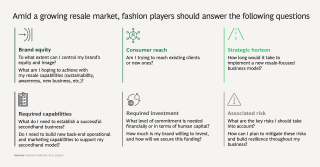Understanding The Value Of Middle Management In Today's Workplace

Table of Contents
Bridging the Gap Between Executive Leadership and Frontline Employees
Middle managers serve as the critical link between executive leadership and frontline employees. They translate the overarching strategic goals set by upper management into actionable plans and day-to-day tasks for their teams. This crucial translation process ensures that everyone within the organization is working towards a common objective. Effective communication is at the heart of this process. Middle managers are responsible for:
- Translating complex strategies into clear, achievable goals for teams. This involves breaking down large-scale projects into smaller, manageable tasks, ensuring clarity and accountability at every level.
- Facilitating open communication between upper management and employees. This two-way communication flow allows for the efficient transmission of information and the timely identification and resolution of potential issues.
- Identifying and addressing employee concerns before they escalate. Middle managers are often the first point of contact for employees, allowing them to address problems early and prevent them from impacting broader team morale or productivity.
- Gathering and reporting valuable feedback from frontline employees. This feedback is essential for refining strategies, improving processes, and ensuring that the organization remains responsive to the needs of its workforce. This feedback loop is critical for organizational communication and ensuring alignment between all levels.
Driving Employee Engagement and Motivation
Highly engaged employees are more productive, innovative, and committed to their organization. Middle managers play a pivotal role in fostering this engagement. Their daily interactions with team members provide ample opportunities for mentorship, coaching, and motivation. Key responsibilities include:
- Providing regular feedback and recognition to boost morale. Positive reinforcement and constructive criticism are vital tools for driving employee motivation and ensuring that team members feel valued.
- Creating a positive and supportive work environment. Middle managers set the tone for their teams. A supportive and inclusive environment fosters collaboration and boosts morale.
- Offering opportunities for professional development and growth. Providing access to training, mentorship programs, and challenging assignments contributes to employee satisfaction and retention.
- Addressing employee concerns and fostering a sense of belonging. Middle managers create an environment where employees feel heard, understood, and supported, leading to increased loyalty and engagement. Effective leadership styles are crucial here.
Fostering Innovation and Problem-Solving Within Teams
Middle management isn't just about following orders; it's about empowering teams to be creative and proactive. Middle managers create an environment where innovation thrives by:
- Delegating tasks effectively and fostering autonomy within teams. Trusting team members with responsibility and decision-making empowers them and promotes a sense of ownership.
- Encouraging collaboration and knowledge sharing among team members. Fostering a culture of open communication and shared learning sparks creativity and problem-solving.
- Identifying and removing obstacles that hinder productivity. Middle managers act as advocates for their teams, removing roadblocks and ensuring that teams have the resources they need to succeed.
- Promoting a culture of continuous improvement and innovation. By encouraging experimentation, embracing feedback, and celebrating successes, middle managers create an environment where innovation is not just encouraged but expected.
Improving Operational Efficiency and Productivity
Middle managers are directly involved in the day-to-day operations of their teams, making them instrumental in optimizing workflows and boosting overall productivity. This involves:
- Implementing effective performance management systems. Tracking progress, providing regular feedback, and setting clear goals contributes to improved team performance.
- Monitoring team progress and identifying areas for improvement. Regular monitoring ensures that projects stay on track and allows for proactive problem-solving.
- Optimizing resource allocation to maximize efficiency. Middle managers ensure that teams have the resources they need, and that these resources are used effectively.
- Implementing best practices and streamlining processes. Identifying inefficiencies and implementing improvements contributes to significant gains in productivity.
Recognizing and Investing in the Value of Middle Management
In conclusion, the significant contributions of middle management to organizational success are undeniable. They are the bridge between leadership and execution, the drivers of employee engagement, the champions of innovation, and the architects of operational efficiency. Investing in middle management through targeted training, development opportunities, and recognition programs is not an expense, but a strategic investment that yields significant returns. By recognizing and investing in the value of middle management, organizations can cultivate a more engaged, productive, and innovative workforce. Re-evaluate your approach to middle management today and unlock the untapped potential within your organization. Developing middle managers into effective leaders is crucial for the future success of any organization that values effective middle management and truly wants to understand the value of middle management.

Featured Posts
-
 Obnovlyonnye Standarty Prepodavanie Fiziki I Khimii V Doshkolnykh Uchrezhdeniyakh
May 13, 2025
Obnovlyonnye Standarty Prepodavanie Fiziki I Khimii V Doshkolnykh Uchrezhdeniyakh
May 13, 2025 -
 Accessing Exclusive Off Market Luxury Homes Through Luxury Presence
May 13, 2025
Accessing Exclusive Off Market Luxury Homes Through Luxury Presence
May 13, 2025 -
 Russias Arctic Shadow Fleet Renewed Activity Sparks Global Concern
May 13, 2025
Russias Arctic Shadow Fleet Renewed Activity Sparks Global Concern
May 13, 2025 -
 Portola Valley Preserve Search Intensifies For Missing 79 Year Old
May 13, 2025
Portola Valley Preserve Search Intensifies For Missing 79 Year Old
May 13, 2025 -
 Senior Citizens Guide To Trips Activities And Events A Monthly Calendar
May 13, 2025
Senior Citizens Guide To Trips Activities And Events A Monthly Calendar
May 13, 2025
Latest Posts
-
 Hamas Releases American Israeli Hostage Edan Alexander From Gaza Strip
May 13, 2025
Hamas Releases American Israeli Hostage Edan Alexander From Gaza Strip
May 13, 2025 -
 Secondhand Shopping A Golden Age For Consumers And The Planet
May 13, 2025
Secondhand Shopping A Golden Age For Consumers And The Planet
May 13, 2025 -
 The Rise Of Secondhand A Golden Age For Sustainable Shopping
May 13, 2025
The Rise Of Secondhand A Golden Age For Sustainable Shopping
May 13, 2025 -
 Is Secondhand Shoppings Popularity Reaching A Peak
May 13, 2025
Is Secondhand Shoppings Popularity Reaching A Peak
May 13, 2025 -
 Are We Entering The Golden Age Of Secondhand Shopping
May 13, 2025
Are We Entering The Golden Age Of Secondhand Shopping
May 13, 2025
